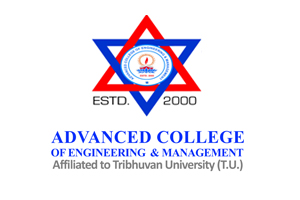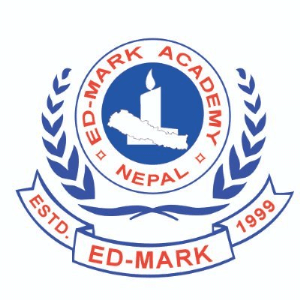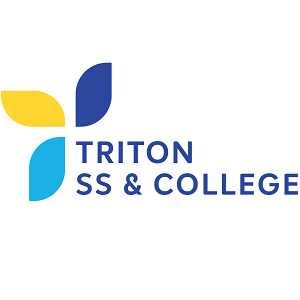Overview
Bachelor of Computer Applications (BCA) — Rainbow International College, Kathmandu
BCA at Rainbow International College (RIC), Dallu/Chhauni, Kathmandu, runs under Tribhuvan University. The program guides you through programming, data structures, databases, networking, web and mobile development, operating systems, and staged projects.
Highlights
-
Affiliation: Tribhuvan University (TU)
-
Location: Dallu/Chhauni, Kathmandu
-
Academic Span: Eight semesters with project work and internal evaluations
-
Learning Spaces: Computer labs, library resources, and multimedia classrooms
-
Student Support: Counseling, non-credit English and computer refreshers, terminal exam feedback
Curriculum Details
Core Study Areas
-
Programming foundations, C programming, object-oriented Java, and .NET
-
Data structures and algorithms with laboratory practice
-
Digital logic, microprocessor concepts, and computer architecture
-
Operating systems and shell/scripting language practice
-
Database management systems, SQL practice, and basic administration
-
Web technology (client–server model, HTML/CSS/JS), framework onboarding
-
Computer networking and network programming basics
-
Mobile programming and cloud computing concepts
-
Numerical methods, mathematics, statistics, and applied economics
-
MIS and e-business fundamentals and introduction to management
-
Professional practice: Cyber law and professional ethics
Projects and Internship
-
Project I (mid program): Small team project with version control and documentation
-
Project II (senior year phase): Feature-complete application with user testing
-
Project III or internship (final phase): Industry project or campus-supervised build with report and viva
Electives
-
Typical choices include GIS, ERP, IT in banking, knowledge engineering, database programming, network administration, and related applied modules.
-
Electives expand specific interests and help you align final projects and internship focus.
Objectives
-
Build a sound base in programming, data handling, and systems thinking.
-
Practice problem solving through structured labs and staged projects.
-
Develop habits in documentation, code review, and ethical practice.
-
Prepare for entry-level roles across software, web, and IT operations in Nepal’s job market.
Scope
-
Graduates work in software development firms, banks and financial institutions, telecoms, NGOs/INGOs IT units, and startup environments.
-
Typical functions include application development, web/mobile builds, database support, junior systems and network roles, QA support, and helpdesk with scripting exposure.
-
Further study options include MCA, MIT, specialized certifications, or focused short courses based on the chosen stack.
Learning Outcomes
Students who complete BCA at RIC usually can:
-
Write programs using structured and object-oriented paradigms.
-
Use data structures and algorithms for performance-aware solutions.
-
Manage relational databases, write optimized queries, and handle transactions.
-
Build web applications and basic mobile apps with simple deployments.
-
Explain operating system services and apply scripting to routine tasks.
-
Describe networking layers and implement socket-based communication.
-
Follow software engineering steps from requirement note to test report.
-
Document projects that peers can install, test, and maintain.
Skill Development Modules
-
Coding fluency: C, Java, .NET exposure; scripting for automation
-
Data handling: SQL, schema design, indexing basics
-
Web stack: Front-end and server-side fundamentals with API calls
-
Mobile basics: Android app structure and lifecycle
-
Systems mindset: OS commands, process and memory view, shell tools
-
Networking practice: IP addressing, routing view, and ports/services
-
Cloud orientation: Service models, basic deployment workflows
-
Ethics and compliance: Responsible coding, license awareness, privacy and security basics
-
Collaboration: Version control, code review, pair programming, and sprint habits
Teaching Methodology
-
Lectures and guided labs mapped to the TU course plan.
-
Terminal exams (thrice yearly in line with college policy) to monitor progress.
-
Assignments, quizzes, viva, and demo days for practical appraisal.
-
Project supervision with milestone checks, repository audits, and documentation rubrics.
-
Counseling for study plans, backlogs, and exam readiness.
Admission Requirements
-
Academic Eligibility: 10+2 or equivalent as recognized in Nepal for bachelor entry.
-
Entrance: TU BCA entrance examination conducted by the concerned TU authority, followed by college-level screening where applicable.
-
Documents: Academic transcripts, character certificate, photos, ID/citizenship; foreign students add passport and equivalency.
-
Intake Notices: RIC follows TU calendars. Applicants should follow current circulars for deadlines and seat availability.
Career Opportunities
-
Software developer (entry level), web developer, and junior mobile developer
-
Database assistant, SQL report developer, and support analyst
-
Network and system support roles with scripting tasks
-
QA assistant and documentation roles in product teams
-
IT support roles in banks, healthcare, education, and development sectors
Scholarships and Financial Aid
-
Merit consideration linked to entrance results or terminal performance where policy allows.
-
Need-based support offered within verified limits.
-
ECA recognition for strong records in sanctioned activities.
-
Applicants should consult current intake notices for criteria and deadlines.
Why Choose This Course?
-
A consistent TU-linked pathway with staged projects that mirror workplace habits.
-
Lab-centered practice that helps you connect theory to working code.
-
Counseling support that treats setbacks as solvable study problems.
-
A campus location that saves commute time and supports steady attendance.
Conclusion
BCA at Rainbow International College provides a clear route from programming basics to project delivery under TU affiliation. Students learn to plan, build, test, and document software while keeping ethics and maintainability in view. Families and educators can expect steady monitoring through terminals, labs, and viva so progress stays visible across semesters.






















